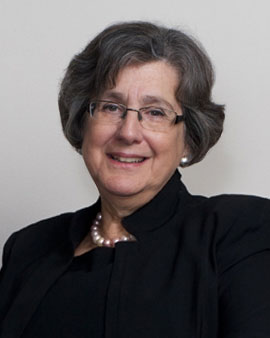Thanks to a $2.6 million, five-year grant from the Substance Abuse and Mental Health Services Administration (SAMHSA), the Caring Together program will be better able to treat substance use disorders across the lifespan.
The grant will allow Caring Together to expand its network of peer support specialists, its community screening for substance use disorder, as well as continue its decades-long work to help women and their children engage in and sustain their recovery from substance use disorders.

Barbara Schindler, MD
Caring Together was founded in 1990 and utilizes a patient-centered, multi-disciplinary approach to treat substance use disorders. The program also helps patients with underlying and co-occurring conditions including psychiatric disorders that are contributing to cause their substance use disorder or that may result from it.
“We provide medication-assisted treatment, addiction counseling, trauma-informed care, and we actively treat patients’ co-occurring psychiatric disorders,” said Barbara Schindler, MD, a professor of psychiatry and pediatrics and a founder of Caring Together.
Schindler said that grant support from organizations like SAMHSA help the program to maintain services that are not covered by patients’ insurance. The new grant will help maintain and expand Caring Together’s roster of peer support specialists, whose own experience with substance use disorder and recovery guide program participants in their processes.
“Peer support specialists are crucial because they can connect with people and can say, ‘I’ve been where you are; I know what you’re going through,’” Schindler said. “They’re available to provide peer support 24/7, and program participants feel very connected to them.”
Some of Caring Together’s new peer specialists will help to expand the program’s community outreach and screening for substance use disorders to more families with children, as well as to a new population of adults and their families. Reaching these new groups is important because substance use disorder is often a pediatric disease, beginning in childhood, and is also a familial and intergenerational disease, according to Schindler.
Schindler said that she often meets mothers whose substance use disorder began when they were in their early teen years and used substances to help themselves cope with trauma and other mental health challenges.
“When I interview mothers in the Caring Together program, the story I most often hear is that they have a family history of substance abuse, may have even been exposed to maternal substance use in utero, experienced physical or sexual trauma growing up, and started using alcohol and marijuana in their early teens,” Schindler said. “So it’s really important to identify and start to work with young people and with their families to help identify their risk factors for substance use disorders, especially when we know it is something their parents have experienced as well.”
To connect with more young people and their families, peer specialists will work in the waiting rooms of St. Christopher’s Hospital for Children and at Drexel University’s student health facility. Peer specialists will talk with patients – and, at St. Christopher’s, with their family members – about their experience with substance use, help identify risk factors for substance use disorder, and assess whether they have family members experiencing substance use disorder.
If patients or their family members need support to recover from substance use disorder, they’ll be referred to Caring Together or other local treatment programs.
During these screenings, peer support specialists will also distribute Narcan, an overdose-reversal drug, and test strips for the highly potent, extremely dangerous, and readily-available opioid fentanyl. The logic, Schindler said, is that even if patients being screened for substance use disorder do not have the illness themselves, it’s statistically likely that they know someone else who does.
Although the Caring Together program only serves women and their children directly, its whole-family approach means that peer specialists and other program staff can help connect male family members to substance use disorder treatment through Merakey and other local treatment programs.
Additionally, the SAMHSA grant will help Caring Together focus on family reunification in circumstances where a family has been separated due to a parent’s substance use disorder. Grant funds will support the program’s continued collaboration with students and faculty in the Drexel University College of Nursing and Health Professions to provide family therapy and work with Caring Together participants toward the goal of reunification.
“We want to bring together extended family members who might be struggling because of a participant’s substance abuse and who have lost custody of their children,” Schindler said. “Of course, bringing mothers and kids back together is a very large piece. Many of our moms have teenage kids, while others have newborn babies or even adult children – but they all have the goal of re-establishing relationships with their children if they have lost custody of their kids.”
In addition to reunification and community outreach expansion, SAMHSA grant funds will support Caring Together in growing its outreach to adult patients in various local health care practices, especially mothers who have delivered substance-exposed babies. The program will also provide more trainings on substance use disorder risk assessment and various, evidence-based treatment modalities to Drexel University-based health care students and providers.
Caring Together was founded with SAMHSA grant funds 30 years ago and has benefitted many times over the years from the organization’s support. Today, Schindler and her colleagues still provide psychiatric care and medication-assisted treatment to many program graduates; Schindler said it has been powerful to maintain relationships with participants who graduated from Caring Together’s core program 10 or 15 years ago.
“It’s very gratifying, because when people first come in, they’re unsure about recovery, and sometimes it takes a few tries until they finally engage,” Schindler said. “For some of our most successful participants, their connection to the program wasn’t easily developed – but they finally connected and were successful in their recovery.”